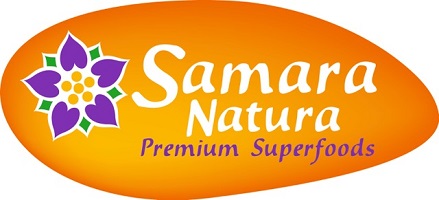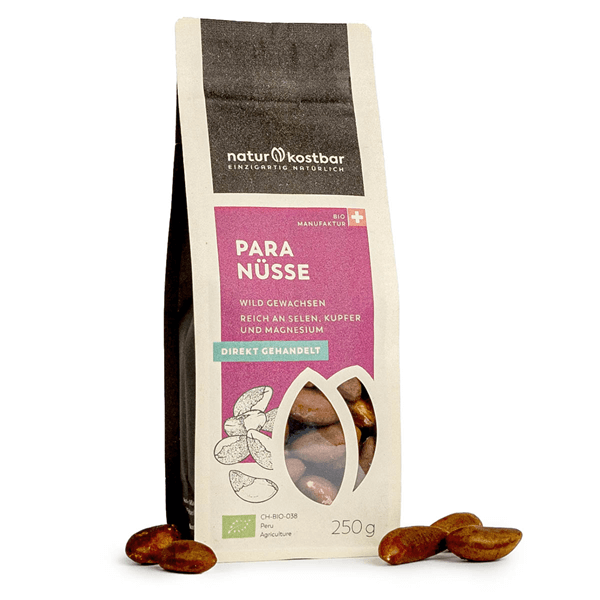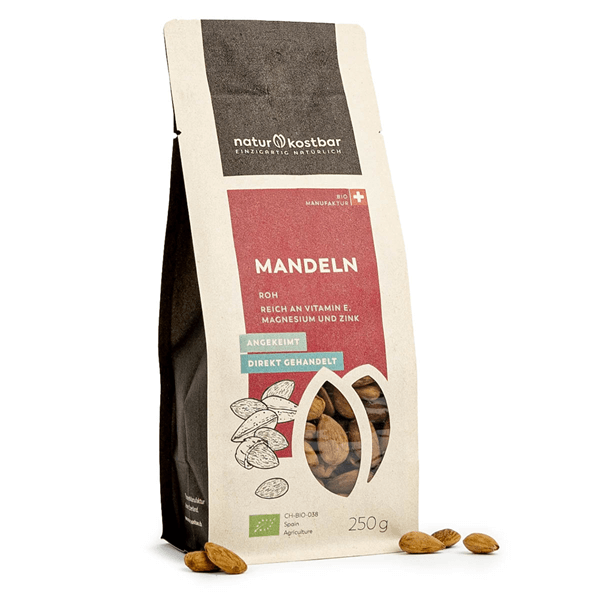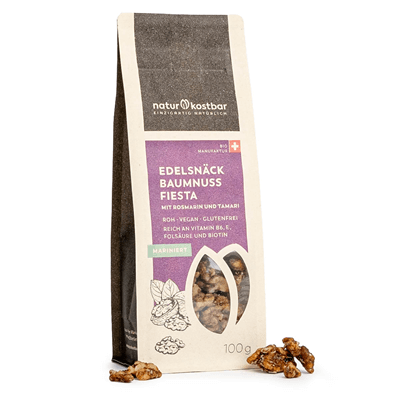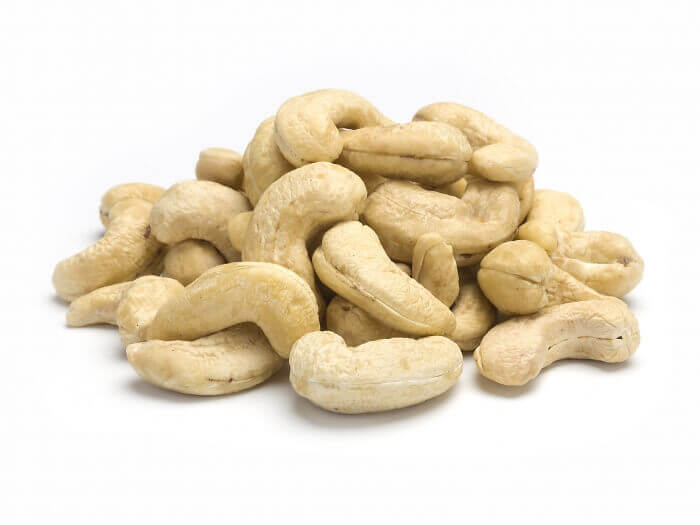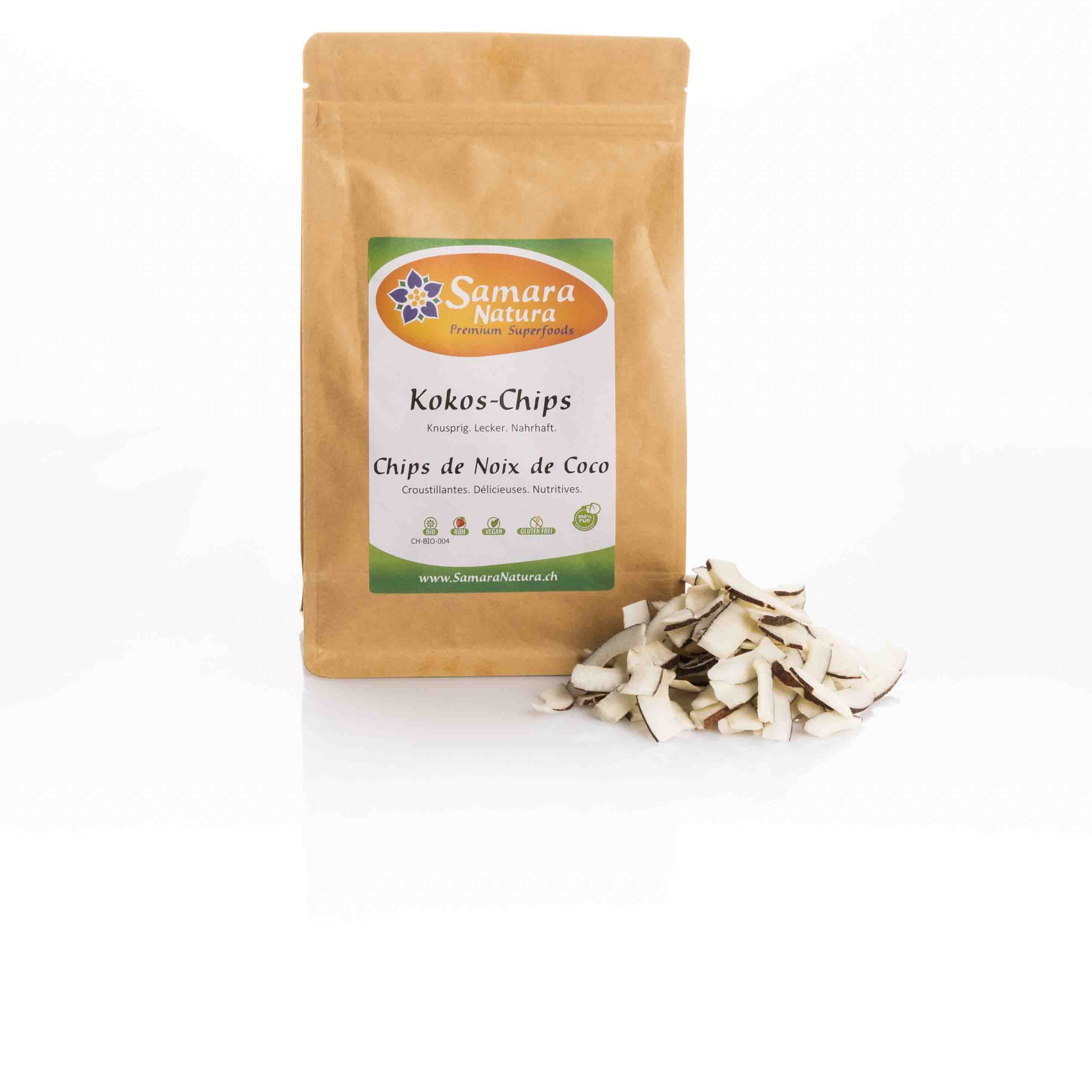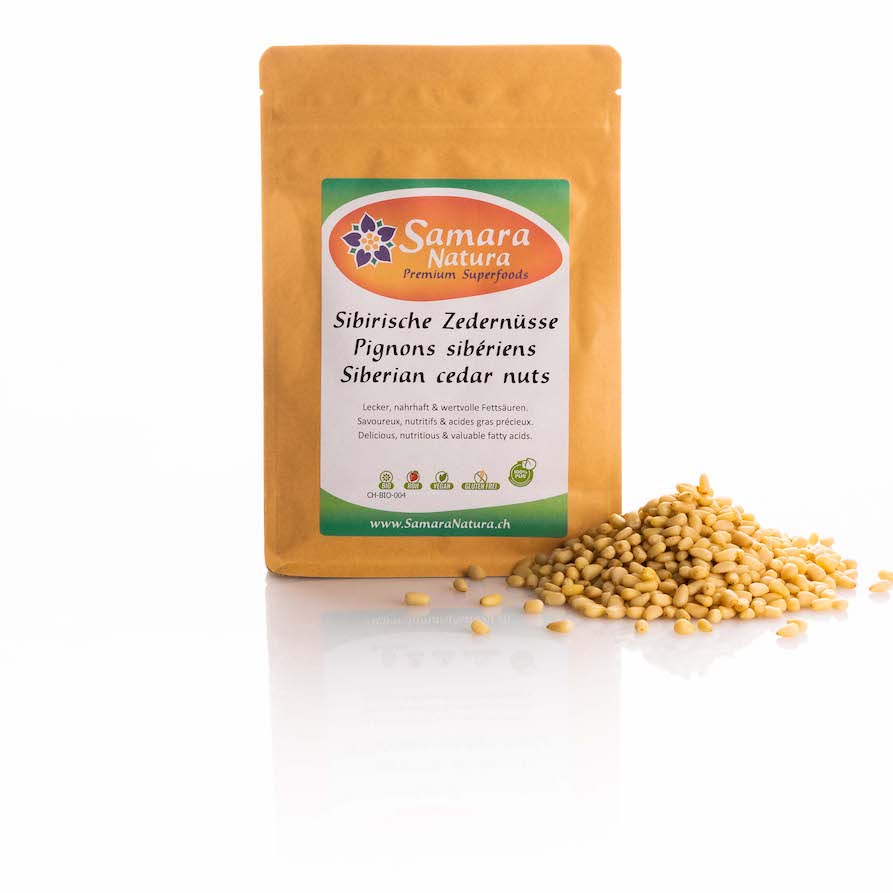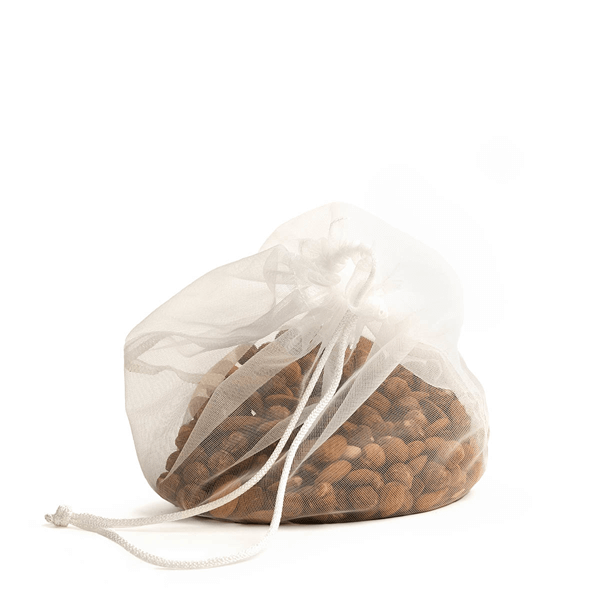| Quantity | Unit price | Base price |
|---|---|---|
| To 2 |
CHF 11.50*
|
CHF 4.60* / 100 Gramm |
| From 3 |
CHF 10.93*
|
CHF 4.37* / 100 Gramm |
Available, delivery time: 2-5 days
Product information "Cashewkerne Bio Naturkostbar"
Organic cashew nuts from Vietnam
These crunchy organic cashews are natural and unroasted. They taste deliciously sweet and nutty and can be used in a variety of ways.
Origin
The farmers in the Vietnamese province of Binh Phuoc grow the cashews in harmony with nature. Thanks to an optimal climate, nutritious soil and careful harvesting, the cashew nuts are of top quality. The kernels are shelled directly on site in a modern facility with high safety standards to protect the employees and imported to Switzerland by Naturkostbar.
The cashews are selected in the Naturkostbar factory. The best kernels are sold and the rest (e.g. opened kernels) are processed into stone-ground cashew butter.
Use
We love these cashews as a snack on their own or mixed with fresh or dried fruit. Sprinkle cashews on salads or use them for cashew milk and many vegan desserts such as pudding and cheesecake.
Tip: Combining cashews with goji berries and/or cocoa nibs creates a very special flavour experience.
Nutritional values of organic cashew nuts Jumbo per 100g
| Energy / nutrient per 100g | g/mg/μg | %1 |
|---|---|---|
| 1 reference quantity/daily dose for an average adult (8400kJ/2000kcal) | ||
| Energy | 2460kJ (593kcal) | 29% |
| fat | 45.2g | 65% |
| of which monounsaturated fatty acids | 23.8g | 159% |
| of which polyunsaturated fatty acids | 7.8g | - |
| of which saturated fatty acids | 7.8g | 39% |
| Carbohydrates | 26.6g | 10% |
| thereof sugar | 5.9g | 7% |
| Protein | 18.2g | 36% |
| salt | - | - |
| Dietary fibre | 3.6g | 7% |
| Vitamin A | - | - |
| Vitamin C | 0.5mg | 1% |
| Vitamin D | - | - |
| Vitamin E | 6.3mg | 53% |
| Vitamin K | - | - |
| B-carotene (provitamin A) | - | - |
| Vitamin B1 | 0.42mg | 38% |
| Vitamin B2 | 0.1mg | 7% |
| Vitamin B3 | 1.1mg | 7% |
| Vitamin B6 | 0.4mg | 29% |
| Vitamin B12 | - | - |
| magnesium | 270mg | 72% |
| copper | - | - |
| manganese | - | - |
| selenium | - | - |
| iodine | 10µg | 7% |
| Folic acid/folacin | 25µg | 13% |
| Chloride | 18mg | 2% |
| potassium | 660mg | 33% |
| biotin | - | - |
| Pantothenic acid | 0.9mg | 15% |
| calcium | 40mg | 5% |
| phosphorus | 540mg | 77% |
| iron | 5.2mg | 37% |
| Zinc | 4mg | 40% |
| Molybdenum | - | - |
| fluoride | - | - |
| chromium | - | - |
Login
